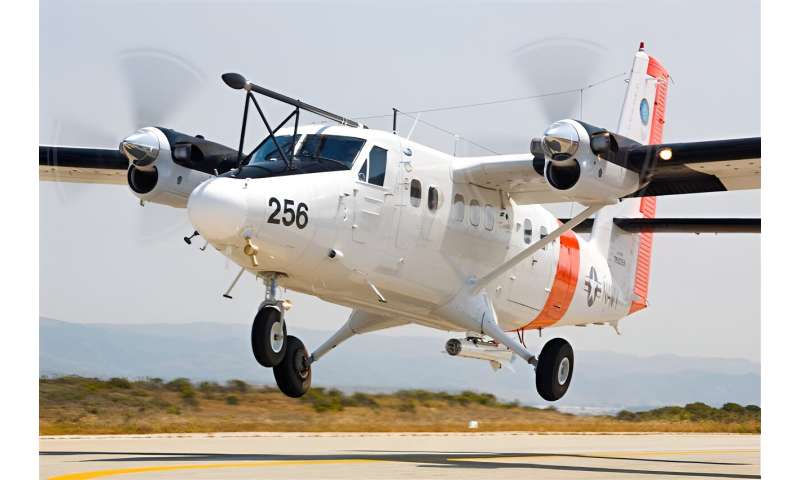First phase of weather and climate experiment completed in Barbados

The U.S. Naval Research Laboratory (NRL) has completed its contribution to the Moisture and Aerosol Gradients/Physics of Inversion Evolution (MAGPIE) program, the first phase of an 18-month mission in Barbados. Its aim is to study the exchange processes of heat, moisture, African dust, and sea spray between the atmosphere and ocean over the Subtropical Atlantic Ocean.
MAGPIE was formed in partnership with scientists at the Naval Postgraduate School (NPS), Caribbean Institute for Meteorology and Hydrology (CIMH), the National Ocean and Atmosphere Administration (NOAA), National Aeronautics and Space Administration (NASA), and many universities. The goal is to understand how energy and atmospheric constituents exchange between the warm subtropical ocean and the atmosphere through clouds and its subsequent relationships to weather and climate.
"These types of exchange processes are what drive weather and climate, and an understanding is needed to allow us to monitor and ultimately forecast impactful atmospheric phenomenon," said Jeffrey Reid, Ph.D., NRL's Science Lead of MAGPIE.
The MAGPIE experiment was conducted during a crucial period in atmosphere research. On August 31 it completed its first phase of airborne research, with 17 flights coinciding with record global ocean temperatures.
"We are in uncharted territory," noted Elizabeth Thompson MAGPIE's NOAA lead from NOAA's Earth System Research Laboratories in Boulder Colorado. "Typically in El Niño year's hurricane activity is at a minimum in the Atlantic. Yet, record warm oceans is what drives hurricanes and other severe weather. We need to understand how the ocean-atmosphere system will interact."
Being approximately 3000 miles downwind of Africa with good scientific infrastructure, Barbados has a long history of international collaboration in ocean/atmosphere basic research. Along with the University of Miami Barbados Atmospheric Composition Observatory (BACO), the nearby German Max Planck Institute for Meteorology: Barbados Cloud Observatory (BCO), and assets of the Barbados Meteorology Service and CIMH, Barbados is a natural laboratory to not only study how energy is cycled but to develop new atmospheric monitoring technologies.
"We are questioning fundamental conceptual models of air motion of marine and island environments as well as the common measurement methodologies," said Dr. Reid. "To make much needed progress in atmospheric prediction, we developed a team across agencies to advance promising new measurements and data integration technologies."
Central to MAGPIE is the development of new lidar, radar, and hyperspectral radiometry technologies, in conjunction with advanced satellite remote sensing data provided by NASA and NOAA. In particular, ground and airborne lidar systems from the University of Wisconsin and the University of Colorado allow scientists to see the various scales of air motion in unprecedented detail. Context for these measurements are then provided by BACO, MAGPIE's research aircraft, and a variety of space based remote sensing data. All of these datasets are being integrated and used to evaluate and improve models at the meter scale at the University of Notre Dame and University of Minnesota, up through global scales by NRL and NOAA.
MAGPIE operations are consistent with the U.S. Navy's desire to improve our ability to monitor, predict, and operate within the coupled ocean-atmosphere system that drives impactful maritime weather such as hurricanes, organized thunderstorms and island flooding. These desires span far beyond operational weather to planning for the future. The Navy will work with Caribbean partners to address region-specific needs for early warning, disaster risk reduction, and climate adaptation, and to provide access to global climate data, tools, and information. By combining the capabilities of BACO with the innovative methodologies of MAGPIE, we will gain invaluable insights into the atmospheric processes that impact our region.
With the first phase completed, scientists will now evaluate this last summer's data and the mission's methodologies to further refine observation plans for summer 2024. From there, findings will be incorporated into operational systems. The MAGPIE augmentation to the Ragged Point BACO is expected to continue through 2024. Planned for winter 2024 is an overall refurbishment of the BACO to help ensure the data record continues.
Provided by Naval Research Laboratory